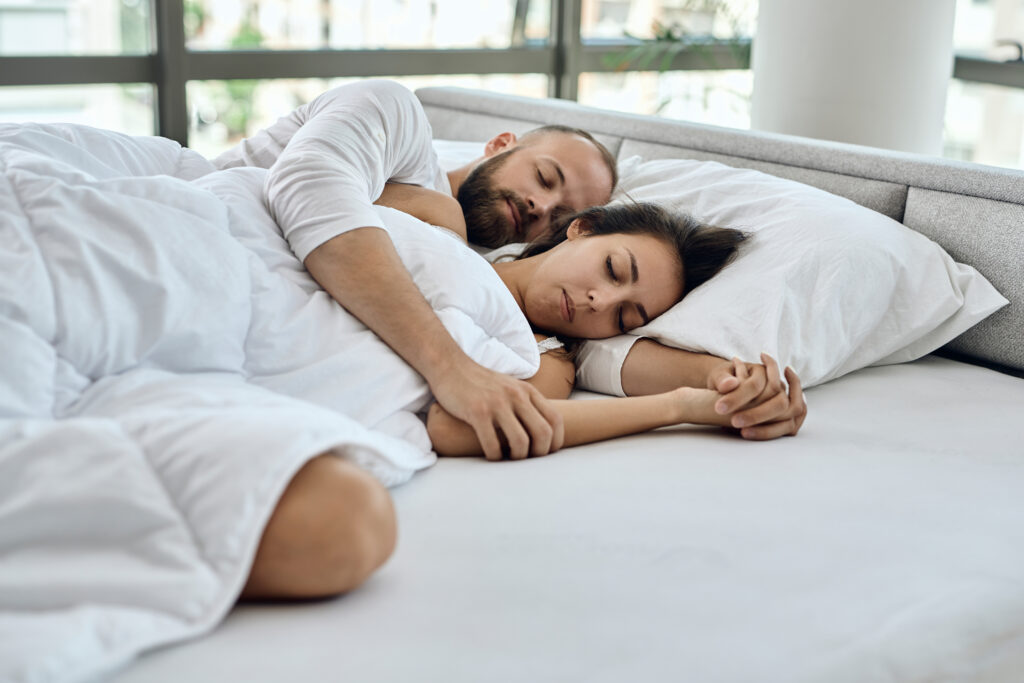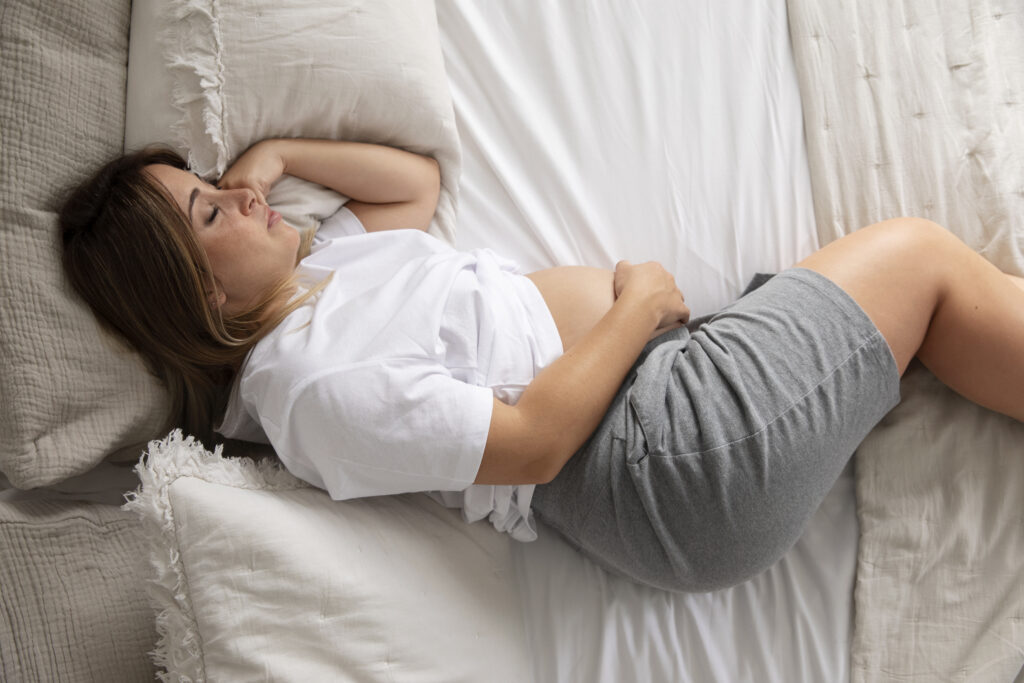Spread the love
Sleeping right after eating can affect digestion, sleep quality, and overall health. The timing between your last meal and bedtime is important for several reasons. Here’s a detailed breakdown of How Long After Eating Can I Go To Sleep:

01. Time Required for Digestion Process
- Time Required for Digestion: After eating, the body begins the digestion process, which typically takes about 2 to 4 hours for the stomach to empty its contents into the small intestine. This can vary depending on the size and composition of the meal.
- Impact of Immediate Sleep: If you lie down or go to sleep immediately after eating, the digestion process can be disrupted. This may lead to indigestion, heartburn, or acid reflux, as lying down can cause stomach acid to flow back into the esophagus.

02. Blood Sugar Levels
- Postprandial Blood Sugar Spike: Eating, especially meals rich in carbohydrates, causes a temporary rise in blood sugar levels. The body responds by releasing insulin to manage this spike.
- Impact on Sleep Quality: Going to bed right after eating, particularly after a high-carb or high-sugar meal, may interfere with sleep. The body is still working to manage the spike in blood sugar, which can lead to restless sleep or waking up during the night.

03. Sleep Quality
- Body’s Focus During Sleep: During sleep, the body prioritizes rest and repair over digestion. If the body is still digesting food when you go to sleep, it can interfere with the deep stages of sleep, leading to poor sleep quality.
- Sleep Disruptions: Eating heavy or spicy foods before bed can increase the likelihood of sleep disturbances, such as waking up frequently or experiencing vivid dreams due to digestive discomfort.

04. Weight Management
- Calories and Metabolism: The body continues to burn calories even while sleeping, but the rate is slower compared to when you’re active. Eating right before bed can result in unused calories being stored as fat, especially if you consume high-calorie foods.
- Impact on Weight Gain: Regularly going to sleep soon after eating can contribute to weight gain over time, as the body has less time to burn off the calories consumed.

05. GERD and Acid Reflux
- Risk Factors: Gastroesophageal reflux disease (GERD) is a condition where stomach acid frequently flows back into the esophagus, causing heartburn and discomfort.
- Influence of Timing: Eating close to bedtime increases the risk of GERD symptoms, as lying down can cause the acid to move upwards more easily. It’s recommended to wait at least 2-3 hours after eating before lying down to minimize this risk.

06. Optimal Timing for Sleep After Eating
- General Recommendation: To avoid the negative effects of sleeping right after eating, it’s advisable to wait at least 2-3 hours after a meal before going to bed. This gives your body enough time to start digesting the food and reduces the risk of discomfort or sleep disturbances.
- Light Snacks: If you need to eat something closer to bedtime, opt for a light, easily digestible snack, such as yogurt, a small portion of fruit, or a handful of nuts. This can prevent hunger without overwhelming the digestive system.

07. Special Considerations
- Individual Differences: Some people may have specific health conditions or metabolic rates that influence how they should time their meals relative to sleep. For example, people with diabetes or GERD may need to be more cautious about their meal timing.
- Lifestyle Factors: Consider your daily routine and lifestyle. If you exercise late in the evening, you might need a post-workout meal, which could be timed closer to bedtime. In such cases, the meal should be small and balanced to avoid disrupting sleep.

Conclusion
To promote good digestion, avoid discomfort, and improve sleep quality, it’s best to wait at least 2-3 hours after eating before going to bed. This allows your body to digest the food properly and reduces the risk of issues like heartburn, indigestion, and poor sleep.

How Can I Make My Newborn Sleep At Night 2024

Should I Sleep With Gauze After Tooth Extraction

Why Am I Still Tired After 12 Hours Of Sleep



2 thoughts on “How Long After Eating Can I Go To Sleep”